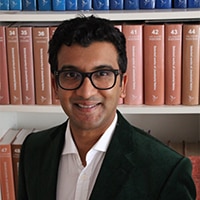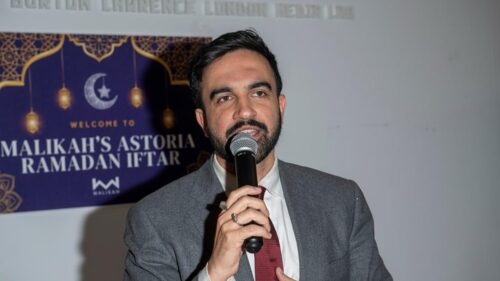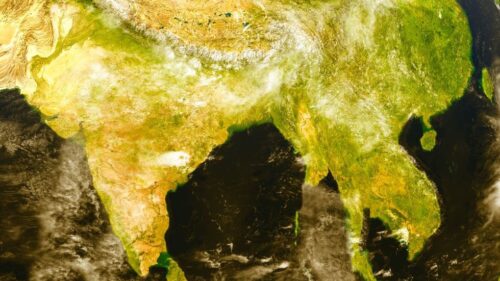Britain no longer runs an empire, but the imperial influence persists in surprising places. Former colonies still speak English, use common law and house financial centers like Singapore and Dubai, which are modeled after London. Not only England but also Scotland and Ireland played an outsized role in shaping this legacy. Thanks to the empire on which the sun never set, the impact of England, Scotland and Ireland reached far beyond the British Isles.
Harshan Kumarasingham knows this firsthand. Born to Sri Lankan heritage, raised in New Zealand and now teaching in Scotland, his life reflects the British Empire's global web. Importantly, this noted scholar’s ideas of “Eastminster” and “vice-regalism” explain how imperial power morphed, not vanished, after the end of the empire.
From Westminster to Eastminster
Great Britain’s Westminster model of democracy evolved over centuries. Once Britain acquired its empire, colonial administrators exported this model to the colonies. Yet they modified the model right at the start. All power was ultimately concentrated in the hands of the viceroy, who was deputizing for the British crown. So, the colonies inherited a vice-regal form of government with the trappings of the Westminster model.
After independence, colonies moved rapidly from the Westminster model to the Eastminster one. After World War II, independence came suddenly. Colonies did not have time to evolve political norms or other institutions. They inherited the apparatus of the state from the colonial government that answered to London, not to the natives. Unlike the UK, the colonies did not experience the slow evolution of democracy over time.
Local elites took over the centralized oppressive structures of colonial governments. Most postcolonial leaders had studied in British institutions such as Oxford or Cambridge. Jawaharlal Nehru, India’s first prime minister, went to the same school as Winston Churchill, the British wartime leader. The likes of Nehru adopted the English language and British ideas, even when they were fighting their colonial masters.
After independence, the local elites chose the modified Westminster model that Kumarasingham calls the Eastminster model themselves. Nobody forced India, Sri Lanka or Pakistan to choose this model. The postcolonial elites chose this model willingly, but, over time, adapted it to their own purposes.
Eastminster model has a concentration of power
As mentioned earlier in this write-up, the colonies had experience of vice-regal government. At the end of the day, the viceroy was in charge and the natives did not matter. So, even when democracy came to the colonies, the Eastminster model allowed leaders to concentrate power.
It is the Eastminster model that has allowed Indian leaders like Indira Gandhi in the 1970s and Narendra Modi today to concentrate power. This model allowed Sri Lanka to move from a prime ministerial form of government to a presidential one. In Pakistan, Muhammad Ali Jinnah became the governor-general, not the president. The full title of the British viceroy was the viceroy and governor-general of India and Jinnah knew exactly what he was doing when he took that title. It concentrated all power and authority in his hands.
Many Eastminster states now blur the lines between democratic rule and monarchy. They face weak checks and balances. These leaders can silence the opposition. They also enjoy broad symbolic authority, much like the colonial governors who preceded them.
Settler vs subject states
Of course, not all colonies are the same. Settler dominions — Canada, Australia and New Zealand — where the population came from the British Isles, at least in the early days, managed to adopt the Westminster model successfully. The prime ministers of these countries answer to their parliaments. They function in a system of checks and balances and are ultimately answerable to their people.
Unlike settler colonies, the leaders in subject colonies like India or Kenya had little in common with their people. They had become anglicized and were importing alien traditions to their native lands. To their credit, these Eastminster elites often tried to govern fairly. India’s Nehru, Pakistan’s Jinnah, Sri Lanka’s Don Stephen Senanayake and Malaysia’s Tunku Abdul Rahman wanted to include minorities and create modern countries. But all of these leaders ruled top-down, not bottom-up.
Note that this top-down structure was baked into these subject colonies. The British did not create social hierarchies in these colonies. Yes, they certainly reinforced and exacerbated them. After independence, these hierarchies did not go away.
Elected monarchies and the rise of illiberalism
The Eastminster model is increasingly throwing up populist leaders who now act like monarchs. Ironically, many of them have humble beginnings. Modi sold tea outside a train station. Kenyan President William Ruto was a barefoot schoolboy who used to sell chickens at a roadside stall. Yet both of them have concentrated power in their hands and act like kings.
The issue in the Eastminster model is not the background of the leaders. In many countries, plebeians have replaced patricians. The issue in Eastminster democracies today is chronic institutional weakness. Unlike Westminster democracies like the UK or New Zealand, Eastminster parliaments lack real opposition. Unreformed colonial-era bureaucracies hold too much sway. Nehru’s state-led economic model is a classic case in point that handed power to powerful bureaucrats and left little room for rivals. Hence, Eastminster systems often lack the basics of liberal democracy: debate, pluralism and strong courts.
Thanks to weak institutions, many democracies are turning illiberal. Turkish voters have thrown in their lot with Recep Tayyip Erdoğan, a strongman who has been in power forever. In Eastminster, many leaders rule by fiat. Democracies have often failed to deliver and people prefer food and stability over rights and freedoms. Singapore, an authoritarian democracy, clearly proves this point.
The problems of Eastminster are now infecting Westminster. The UK elected Boris Johnson and is now flirting with Nigel Farage. America has elected Donald Trump again. The West can no longer assume that elections equal liberty. Nor can former colonies. All must rethink what democracy really means — and what they want from it.
[Atul Singh and Kaitlyn Diana edited this piece]
The views expressed in this article/video are the author’s own and do not necessarily reflect Fair Observer’s editorial policy.











































Comment
Living in India, Harshan Kumarasingham’s Eastminster model is too close to reality as it brilliantly reveals how colonial legacies shape modern governance. It explains how leaders like current Indian PM Narendra Modi and Kenyan President William Ruto wield immense power in fragile democracies that were former colonies. This further paves the way for weak institutions and weaker checks and balances.
As an American, I can’t imagine living by an “unwritten” constitution the way Britain does… So the various post-colonial nations all operate based on different but equally valid interpretations of Britain’s political system? What are some of the key differences between the systems in Papua New Guinea versus Kenya, for example?